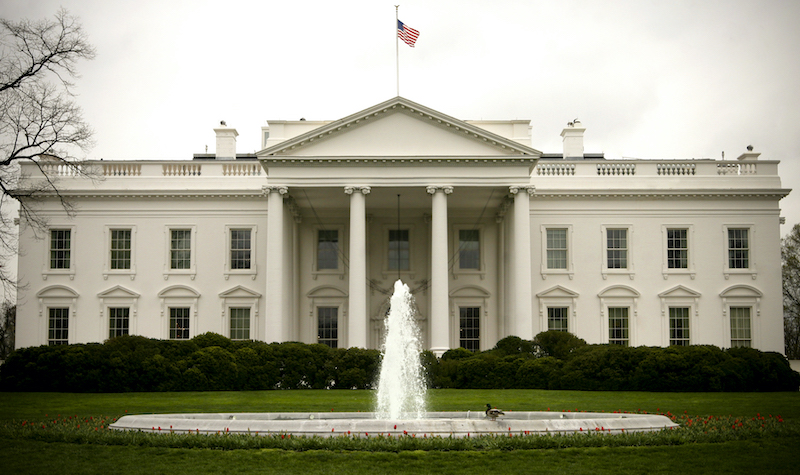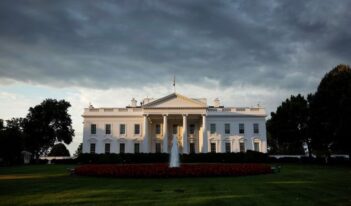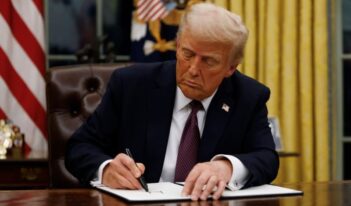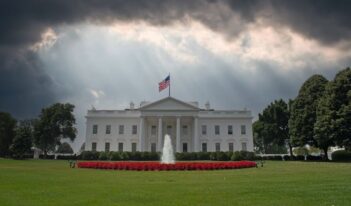
Interest groups that lobby OIRA impact public policy, yet OIRA’s role as a regulatory gatekeeper remains understudied.
Regulatory policymaking plays an outsized role in American public policy today.
Although the media and many academic researchers focus closely on the U.S. Congress, one scholar estimates that agency regulations—and not congressionally passed statutes—account for over 90 percent of American laws today. This difference is not surprising given the hyper-partisanship and political polarization of today’s divided Congress.
No matter which party carries the presidency or the Congress in November, the writing of agency regulations will continue, if not accelerate. One part of society already knows this well: interest groups. In addition to lobbying Congress and the White House, such entities regularly lobby agencies for policy changes that benefit their organizations during the agency rulemaking process.
Yet empirical research focused on lobbying public agencies remains rare, especially during rulemaking. This lack of quantitative analysis particularly holds for the infamous, albeit obscure, gatekeeper of the agency rulemaking process, the President’s Office of Information and Regulatory Affairs (OIRA), where, as our recent study indicates, the savviest and most sophisticated of interest groups do a great deal of lobbying.
In this study, we examined all regulations reviewed by OIRA from January 2005 through June 2011 to demonstrate who shows up to lobby OIRA on pending agency regulations—and equally importantly, who does not. We found that hundreds of interest groups held nearly 800 lobbying meetings with OIRA officials on 315 proposed regulations, which included Affordable Care Act (ACA) regulations, rules dealing with discrimination in air travel, and the U.S. Department of Education’s rule on gainful employment measures. Indeed, the gainful employment rule had more meetings (17) than any other rulemaking and involved more interest groups (43) than any other in our study. Yet, what stood out most in our findings was that industry groups and law and lobbying firms—which are often associated with industry groups—account for almost two-thirds of the attendance at these OIRA lobbying meetings. For some agencies, such as the U.S. Department of Veterans Affairs and the U.S. Department of Housing and Urban Development, the percentages were even higher.
Why focus on lobbying at OIRA? As we have shown previously, lobbying OIRA appears to have significant effects on regulatory outcomes. Using plagiarism software, similar to what a college professor might use to check for violations across student papers, we compared the draft rules that agencies submit to OIRA for review with the final rules issued after OIRA’s suggested changes. We found that these two documents often differ substantively. Our findings suggest that agencies rewrite the rules—and therefore reshape the law—based on OIRA’s suggestions.
Specifically, we found that an increase in lobbying activity appears to be directly associated with more textual changes between draft and issued rules. We also found that when only business groups lobby—unopposed by public interest groups—rules are likely to change significantly. Notably, we did not find similar strong effects when public interest groups lobby unopposed, which only occurred in a handful of cases.
And as we have argued, our research design provided a somewhat greater degree of certainty that these changes can be attributed to the lobbying, because at this late point in the regulatory process, the President and OIRA have already had plenty of opportunities to influence the content of an agency’s draft rule.
In subsequent work, we have sought to answer whether OIRA was more likely to request changes to regulations written by liberal, neutral, or conservative agencies. To determine agency ideology, we relied on two standard metrics based on expert opinions and a survey of federal executives. Looking at rulemakings written under both President George W. Bush and President Barack Obama, we found that OIRA frequently recommends substantive changes to the content of rules developed by federal agencies, but these changes are not used to correct ideologically extreme agencies affiliated with either political party more than agencies with less extreme ideology metrics. We also found no support for the commonly promoted hypothesis that Presidents are more likely to change proposals when the submitting agency’s political ideology differs from the President’s.
Instead, the findings from our more recent work suggest that, irrespective of the party of the President, OIRA is significantly more likely to interfere with rulemakings from more liberal agencies and departments, such as the U.S. Environmental Protection Agency, as compared to moderate or more conservative ones, such as the U.S. Department of Transportation or the U.S. Department of Defense. Moreover, the extent of changes requested by OIRA for left-of-center agencies also tend to be larger than those for other types of agencies. This finding holds across both Presidents in our study—one a Republican and the other a Democrat.
Rulemaking matters to U.S. policymaking today, and OIRA plays a key role during this process. Greater scholarly and media attention should focus on OIRA’s impact on the rulemaking process. As our recent work on rulemaking under the ACA indicates, statutes passed by Congress devolve policymaking authority to the government bureaucracy. The ACA is hardly alone in its vast delegation of rulemaking powers to administrative agencies.
Yet the importance of rulemaking, particularly the role that OIRA plays as gatekeeper, is too often ignored, is vastly understudied empirically, and receives little media attention. Interest groups are not making the same mistake. As we have shown across a number of quantitative studies, the groups that show up at OIRA’s door, seeking to state their case, appear to shape regulatory decisions—a fact that holds crucial implications for rulemaking and the content of public policy.





